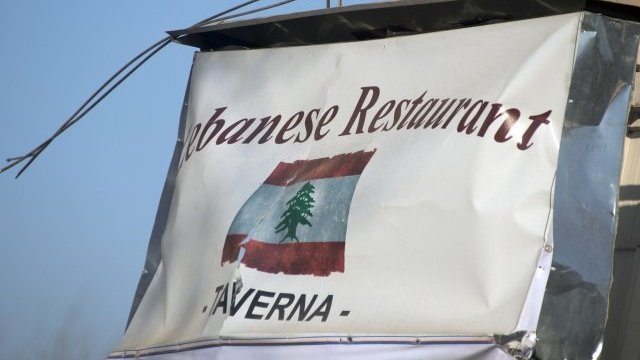
BBC news, By Lyse Doucet:
Kamal Hamade made the best chocolate cake in Kabul, the best Lebanese food and, he thought, the best evacuation plan.
But the plan wasn’t good enough to save him and others who died with him when the Taliban attacked his Taverna du Liban restaurant tucked away in a quiet street of one of the Afghan capital’s oldest neighbourhoods.
But his safety measures did save many lives.
And Kamal is reported to have grabbed a gun from his office to take on his assailants. He was shot dead defending his beloved restaurant.
I would not have expected him to act any differently. His Taverna had come under attack before. He always told me he had his gun at the ready to help defend his patch and the people who made it the special place it was.
When some of his staff were arrested a few years ago in a local dispute, Kamal insisted on going to jail with them because he thought his presence would get them out more quickly. It worked.
Every time I visited him in Kabul, he proudly produced his latest new recipes prepared by his Afghan cooks, and the Lebanese chefs he persuaded to join him in the Afghan capital.
And he often showed me the extra measures – more doors, more guns, more rules – to keep pace with the growing list of security requirements from foreign and Afghan organisations.
Dark omen
Across social media, Afghans and foreigners – who were treated to his hospitality – mourned his passing with sadness and shock: for him, for Afghanistan.
Kamal’s ebullient spirit was forged in his native Lebanon, his brushes with danger and intrigue in places like Baghdad and Kabul.
His warm and ready smile was the mark of a wandering soul who made his home in places where people often lived on the edge and wanted a place to forget that.
 As well as the fatalities, a number of people were injured in the attack
As well as the fatalities, a number of people were injured in the attackIn a tragic twist, his Lebanese friend, the 60-year-old IMF resident representative Wabel Abdallah, also died that night. I often saw them together at the restaurant, reminiscing about the land they left and the place they now called home.
Hours after the blast, details were still emerging of who had perished during what was meant to be a relaxed evening out in Kabul eating the best of Lebanese fare.
Kamal did everything possible to make his Taverna restaurant a home away from home for many Kabul residents.
Whatever food you ordered, he brought double the amount. And when he joined your table, he also brought compelling tales to share.
One night I invited him to join us to discuss a film we were planning on a famous Kabul roundabout that, for centuries, was a focus group for kings and courtiers. In Dari they called it Akbar-e Sar-e Chowk – the news from the roundabout.
It was Kamal who suggested, with his trademark chuckle, that we include the most modern way to find out what was happening – the white surveillance blimp, the eye in the sky bobbing above the presidential palace.
My BBC colleague in Kabul, Bilal Sarwary. said the Taliban attackers did their own research before their attack. Police told him they arrived with "maps, dates, and energy drinks" for a "very organised and well-planned" operation.
When they blasted through the double metal doors, they also destroyed a little of the hope that Kabul can always be the safe inviting place Kamal Hamade wanted the Taverna to be.
"Kabul is bleeding," Bilal wrote on Twitter. "And so is my heart."
In a momentous year meant to measure the strength of Afghan security and stability, it was a dark omen that a precious light in the city had been snuffed out.




